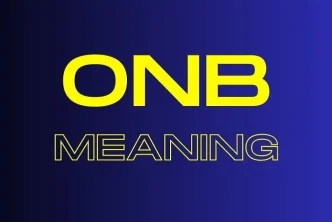Lifelong learning is a concept that transcends age, background, and past achievements. It signifies the continuous pursuit of knowledge and skills throughout one’s life, driven by curiosity, professional needs, or personal goals. In today’s fast-paced and ever-changing world, the need for lifelong learning is more critical than ever. But why is it never too late to start? The idea of constantly evolving and acquiring new skills isn’t restricted to the young or to those just starting out in their careers. Whether you’re looking to advance in your profession, pursue a new hobby, or simply expand your mind, lifelong learning offers countless benefits.
What Is Lifelong Learning?
Lifelong learning refers to the practice of learning new things throughout an individual’s life. It goes beyond formal education and traditional schooling and can take place in many forms, including workshops, courses, self-study, or on-the-job training. It encompasses the continuous pursuit of knowledge and skills, and it can be motivated by various reasons: personal growth, staying competitive in the workforce, or adapting to new technological advances.
This concept is often associated with adults and seniors, but it applies to all age groups, as there are no age restrictions when it comes to gaining knowledge. Lifelong learning can be formal or informal and might involve attending university, obtaining certifications, or simply reading books or exploring topics online.
The Importance of Lifelong Learning in Today’s World
In today’s rapidly evolving world, learning doesn’t stop once you’ve completed your formal education. Technology, global interconnectivity, and constant advancements in various fields mean that there is always something new to learn. For example, the job market is continuously changing, with new industries and roles emerging and old ones disappearing. Without the willingness to adapt and learn, one risks becoming obsolete in an ever-shifting landscape.
Lifelong learning ensures that individuals remain competitive in the workforce, as it helps them develop new skills, stay updated on industry trends, and open doors to new career opportunities. It also encourages intellectual curiosity and cognitive flexibility, making people more open-minded, creative, and better problem solvers.
Why It’s Never Too Late to Start
One of the most significant barriers to lifelong learning is the idea that it’s too late to begin. Many people believe that once they’ve reached a certain age or stage in life, they are past their prime for acquiring new skills or knowledge. This myth couldn’t be further from the truth.
1. The Brain’s Ability to Learn
Our brains remain capable of learning throughout our lives. While it’s true that certain cognitive abilities may change with age, neuroplasticity—the brain’s ability to reorganize itself by forming new neural connections—persists well into adulthood. This means that regardless of age, the brain can still absorb new information, form new memories, and create new skills.
Research shows that adults can continue to build neural connections as they engage in learning activities, whether it’s acquiring a new language, mastering a musical instrument, or learning to code. So, it’s never too late to start learning; in fact, new challenges and learning opportunities can help keep the brain sharp and active.
2. Personal and Professional Benefits
Lifelong learning offers a multitude of benefits, whether you’re aiming to boost your career or improve your personal well-being. Professionally, continuous learning can make you more adaptable, improving your ability to handle changes in your job or industry. It may open up new job opportunities, promote career advancement, and even give you a competitive edge.
For personal growth, lifelong learning fosters a sense of accomplishment and self-confidence. It broadens your horizons, allowing you to explore new ideas, meet new people, and experience a greater sense of purpose. Learning about topics that interest you or acquiring new hobbies can provide a sense of fulfillment, making life more enriching and enjoyable.
3. Access to Resources
The digital age has democratized learning in unprecedented ways. Gone are the days when learning was restricted to physical classrooms and structured environments. Today, there is a wealth of online platforms and resources that cater to various learning styles, including free and affordable options.
Websites like Coursera, edX, Khan Academy, and LinkedIn Learning offer courses on nearly every subject imaginable. For those interested in creative pursuits, YouTube and platforms like Skillshare and MasterClass provide tutorials from professionals in every field. This easy access to educational content has made it possible for anyone to start learning at any time, no matter their background or previous knowledge.
4. Changing the Mindset: The Growth Mindset
One of the key elements that make lifelong learning accessible at any age is adopting a “growth mindset.” This is the belief that abilities and intelligence can be developed through dedication, effort, and learning. A growth mindset encourages individuals to view challenges as opportunities for growth rather than as obstacles or signs of failure.
By shifting from a fixed mindset—where people believe their skills are innate and unchangeable—into a growth mindset, individuals become more willing to embrace learning at any stage of their lives. With the right mindset, it becomes easier to overcome doubts or fears about learning new skills and tackling new challenges.
Overcoming Common Barriers to Lifelong Learning
While the benefits of lifelong learning are clear, there are several common barriers that may prevent individuals from embarking on their learning journey. These barriers can be overcome with some thoughtful strategies and a little determination.
1. Time Constraints
A common challenge for adults, particularly those balancing work, family, and other responsibilities, is finding the time to engage in learning. However, even in a busy schedule, it’s possible to make time for learning. Setting aside a specific time each week, dedicating a few minutes a day to reading, or learning during breaks or commutes can help fit learning into a packed calendar. Starting with small, manageable learning goals can help individuals avoid feeling overwhelmed.
2. Fear of Failure
Many people shy away from learning new things because they fear failure. This fear often stems from the belief that they should be experts or highly proficient at a new skill right away. However, learning is a process, and mistakes are a natural part of it. The key is to embrace the learning journey, knowing that persistence and effort will lead to improvement.
3. Lack of Confidence
As people get older, they may feel that their ability to learn new skills has diminished. This lack of confidence can be a significant barrier to lifelong learning. However, overcoming this obstacle begins with recognizing that it’s never too late to start. Everyone has unique strengths, and learning is about tapping into those strengths and expanding them. Engaging in self-affirmation, seeking encouragement from others, and starting with small wins can help build confidence over time.
4. Technological Barriers
For older individuals, the rapid pace of technological change can seem daunting. However, digital literacy is an essential skill in the modern world, and there are many resources available to help people learn how to use technology. Local community centers, libraries, or online tutorials can be excellent places to start learning digital skills, whether it’s using social media, navigating websites, or learning how to work with new software.
How to Get Started with Lifelong Learning
If you’re ready to start your journey of lifelong learning, here are a few practical steps to get you going:
1. Identify Your Learning Goals
Start by identifying what you want to learn. Do you want to develop a professional skill, explore a new hobby, or deepen your understanding of a subject? Having clear goals can help you stay motivated and focused.
2. Make a Plan
Once you know your goals, make a plan. Set aside specific times each week to devote to learning. Be realistic about how much time you can commit, and be consistent. Consistency is key to building momentum in your learning journey.
3. Find the Right Resources
Choose learning resources that fit your style. If you’re someone who prefers structured learning, you might opt for online courses or workshops. If you’re more independent, reading books, watching tutorials, or exploring self-paced learning might be the best fit. There’s no one-size-fits-all approach, so find what works best for you.
4. Embrace the Journey
Remember, lifelong learning is about the process, not just the end goal. Embrace the journey of discovery, and don’t be afraid to make mistakes along the way. With each new thing you learn, you’re building your knowledge, expanding your skills, and enriching your life.
Conclusion
Lifelong learning is an empowering journey that offers countless rewards. Whether you’re looking to boost your career, enhance your personal growth, or simply satisfy your curiosity, the opportunity to learn is always available. With the right mindset, resources, and determination, it’s never too late to start. So, embrace the journey of learning and make the most of every opportunity to grow, adapt, and thrive.
Read More latest Posts





